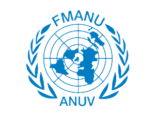Social Reintegration
Gang Recruitment
The recruitment of criminal gangs has been the main method used by Proyecto Alcatraz to dismantle criminal groups operating in the Revenga Municipality of Aragua state and to start the process of transformation and reintegration into society.
Recruitment is made through direct contacts and under no form of coercion whatsoever since entering and remaining in the program is strictly voluntary. Under this scheme, participants go through four phases of work in which, supported by a multidisciplinary group of professionals, they develop new social and work skills to face the challenges of a new life.
Aim
To provide young people and adults with behavioral problems the opportunity to reintegrate into society through training in values and the development of life skills, thus contributing to the reduction of crime rates in the municipality.





Where it takes place
Revenga Municipality, Aragua state, Venezuela
Methodology
Alcatraz 2.0
The Alcatraz 2.0 methodology consists of 4 stages developed over a period of 3 years during which it is applied systematically to the participants, the community and their most influential family members with stress on an intensive training in values.
- Educational therapy
- Sports therapy
- Occupational therapy
- Family therapy
- Psychological therapy
Proyecto Alcatraz works on the basis of the following values:
Restorative Justice
Restorative Justice is a new paradigm for the pacific resolution of conflicts, the aim of which is to build relationships between victims and perpetrators through a process of reconciliation and damage reparation with the participation of a mediator and the community.
To increase the capacity to resolve conflicts pacifically, the Restorative Justice program evolved into a diploma that aims to train people able to effectively deal with crime and to mediate in the resolution of conflicts in their communities.

Aim
Contribute to the transformation of people who have done wrong through this alternative method of conflict resolution.
The application of Restorative Justice means that victim and perpetrator face each other in a process in which the perpetrator recognizes his responsibility for the damage caused and proposes some kind of reparation. The victim on the other hand, can reestablish trust, forgive and even be part of the change undergone by the perpetrator.
The diploma also aims to train those in handing down justice through the development of humanist strategies and alternatives for the resolution of conflicts.
Methodology
Through its curriculum divided into 6 academic modules:
- Restorative Justice I
- Restorative Justice II
- Conflict Mediation
- Emotional Strategies
- Communicative Tools
- Physical Activity: Rugby
